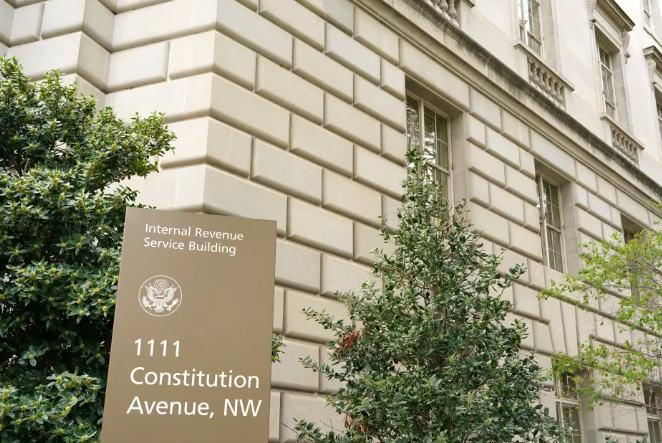IRS to Furlough Nearly Half of Workforce Amid Shutdown, Disrupting Tax Filers Days Before Key Deadline
The Internal Revenue Service announced Wednesday it will furlough nearly half its workforce as the federal government shutdown stretches into its second week, creating major disruptions for taxpayers just days before the extended filing deadline.
According to the agency’s updated contingency plan, 39,870 IRS employees — roughly 53.6% of the workforce — will continue working using non-expiring funds. That leaves tens of thousands of IRS staff furloughed with no clear return date, compounding an already strained system.
Of the employees who will remain on the job, 24,470 are in the IRS’s Taxpayer Services division — but the National Treasury Employees Union (NTEU) warned the public to expect longer wait times and serious delays.
Tax Deadline Chaos Ahead
The furloughs come less than a week before the October 15 deadline for Americans who filed for an extension on their 2024 federal tax returns. With a major portion of the IRS workforce locked out, assistance for taxpayers and the processing of returns will be severely hampered.
“Due to the government shutdown the American people lost access to many vital services provided by the IRS,” the NTEU said in a statement. “Expect increased wait times, backlogs, and delays implementing tax law changes as the shutdown continues.”
Taxpayers trying to reach the IRS for help may find phone lines overwhelmed and paper-based processes grinding to a halt.
Union Slams Lack of Communication
The NTEU blasted the IRS leadership for failing to clearly communicate with employees during the shutdown’s early days. Initially, the agency had instructed all employees to continue working for at least the first five business days of the shutdown, but offered no clarity beyond that.
“Tens of thousands of employees were left in the dark until today,” the union said. “Every day these employees are locked out of work is another day of frustration for taxpayers and a growing backlog of work.”
Furloughed employees were notified they would receive backpay once the shutdown ends, though that could take weeks or longer depending on congressional action.
Political Standoff Intensifies
As the shutdown enters a critical stage, President Trump and Republican lawmakers continue to press Democrats to approve a GOP-led short-term spending bill that would fund the government through November 21 at pre-shutdown levels.
Democrats have refused to support the resolution unless it includes extensions of pandemic-era ObamaCare subsidies and reverses recent changes to Medicaid eligibility rules. All but three Senate Democrats have voted against the stopgap plan.
President Trump last week floated the idea that some of the 750,000 federal workers furloughed during the shutdown could be terminated outright — a move that would escalate the standoff and fuel further backlash from federal employee unions.
Ripple Effects Across the Country
The IRS is not the only agency feeling the impact. Federal services across the board are experiencing disruption, but the IRS’s situation is especially sensitive due to the volume of Americans affected by the tax deadline and ongoing financial issues tied to audits, refunds, or payment plans.
For many, this shutdown marks a familiar and frustrating chapter in Washington gridlock — and without a deal in sight, taxpayers and IRS workers alike are bracing for more uncertainty.

